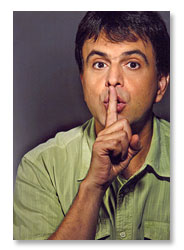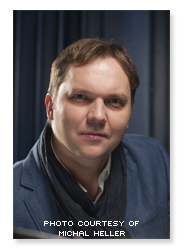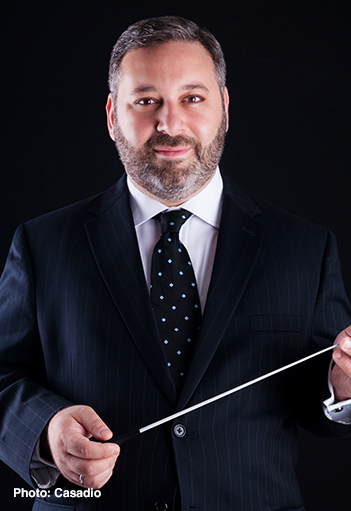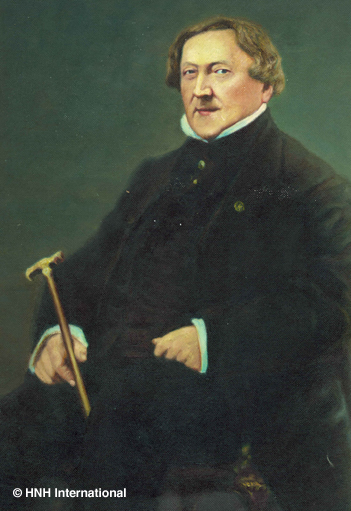Tracklist
Tottola, Andrea Leone - Lyricist
Trucco, Giorgio (tenor)
Amou, Akie (soprano)
Fedeli, Giuseppe (tenor)
Regazzo, Lorenzo (bass-baritone)
Gierlach, Wojtek (bass)
Bandelow, Karen (mezzo-soprano)
Naples San Pietro a Majella Conservatory Chorus (Choir)
Stadtkapelle Bad Wildbad (Orchestra)
Adami, Filippo (tenor)
Württembergische Philharmonie Reutlingen (Orchestra)
Fogliani, Antonino (Conductor)
Württembergische Philharmonie Reutlingen (Orchestra)
Bevacqua, Rossella (soprano)
Naples San Pietro a Majella Conservatory Chorus (Choir)
Adami, Filippo (tenor)
Fogliani, Antonino (Conductor)
Württembergische Philharmonie Reutlingen (Orchestra)
Bevacqua, Rossella (soprano)
Adami, Filippo (tenor)
Fogliani, Antonino (Conductor)
Naples San Pietro a Majella Conservatory Chorus (Choir)
Regazzo, Lorenzo (bass-baritone)
Trucco, Giorgio (tenor)
Württembergische Philharmonie Reutlingen (Orchestra)
Fogliani, Antonino (Conductor)
Naples San Pietro a Majella Conservatory Chorus (Choir)
Fogliani, Antonino (Conductor)
Württembergische Philharmonie Reutlingen (Orchestra)
Bevacqua, Rossella (soprano)
Gierlach, Wojtek (bass)
Regazzo, Lorenzo (bass-baritone)
Adami, Filippo (tenor)
Bevacqua, Rossella (soprano)
Trucco, Giorgio (tenor)
Fogliani, Antonino (Conductor)
Gierlach, Wojtek (bass)
Regazzo, Lorenzo (bass-baritone)
Württembergische Philharmonie Reutlingen (Orchestra)
Naples San Pietro a Majella Conservatory Chorus (Choir)
Adami, Filippo (tenor)
Fogliani, Antonino (Conductor)
Württembergische Philharmonie Reutlingen (Orchestra)
Amou, Akie (soprano)
Adami, Filippo (tenor)
Fogliani, Antonino (Conductor)
Württembergische Philharmonie Reutlingen (Orchestra)
Württembergische Philharmonie Reutlingen (Orchestra)
Adami, Filippo (tenor)
Gierlach, Wojtek (bass)
Bevacqua, Rossella (soprano)
Fedeli, Giuseppe (tenor)
Württembergische Philharmonie Reutlingen (Orchestra)
Fogliani, Antonino (Conductor)
Fogliani, Antonino (Conductor)
Württembergische Philharmonie Reutlingen (Orchestra)
Bandelow, Karen (mezzo-soprano)
Naples San Pietro a Majella Conservatory Chorus (Choir)
Amou, Akie (soprano)
Fogliani, Antonino (Conductor)
Bandelow, Karen (mezzo-soprano)
| 12 | Act I: Che narri? - Il ver (Mose, Osiride, Mambre, Aronne, Chorus, Amaltea, Elcia, Amenofi, Faraone) | 04:50 |
Trucco, Giorgio (tenor)
Amou, Akie (soprano)
Gierlach, Wojtek (bass)
Adami, Filippo (tenor)
Regazzo, Lorenzo (bass-baritone)
Württembergische Philharmonie Reutlingen (Orchestra)
Fedeli, Giuseppe (tenor)
Naples San Pietro a Majella Conservatory Chorus (Choir)
Fogliani, Antonino (Conductor)
Trucco, Giorgio (tenor)
Fedeli, Giuseppe (tenor)
Bevacqua, Rossella (soprano)
Gierlach, Wojtek (bass)
Fogliani, Antonino (Conductor)
Württembergische Philharmonie Reutlingen (Orchestra)
Adami, Filippo (tenor)
Regazzo, Lorenzo (bass-baritone)
Naples San Pietro a Majella Conservatory Chorus (Choir)
Gierlach, Wojtek (bass)
Fogliani, Antonino (Conductor)
Trucco, Giorgio (tenor)
Württembergische Philharmonie Reutlingen (Orchestra)
Adami, Filippo (tenor)
Gierlach, Wojtek (bass)
Württembergische Philharmonie Reutlingen (Orchestra)
Württembergische Philharmonie Reutlingen (Orchestra)
Regazzo, Lorenzo (bass-baritone)
Bevacqua, Rossella (soprano)
Württembergische Philharmonie Reutlingen (Orchestra)
Bevacqua, Rossella (soprano)
Naples San Pietro a Majella Conservatory Chorus (Choir)
Fogliani, Antonino (Conductor)
Regazzo, Lorenzo (bass-baritone)
Württembergische Philharmonie Reutlingen (Orchestra)
Fogliani, Antonino (Conductor)
Württembergische Philharmonie Reutlingen (Orchestra)
Amou, Akie (soprano)
Adami, Filippo (tenor)
Amou, Akie (soprano)
Fogliani, Antonino (Conductor)
Württembergische Philharmonie Reutlingen (Orchestra)
Bevacqua, Rossella (soprano)
Adami, Filippo (tenor)
Württembergische Philharmonie Reutlingen (Orchestra)
Amou, Akie (soprano)
Bevacqua, Rossella (soprano)
Fogliani, Antonino (Conductor)
Naples San Pietro a Majella Conservatory Chorus (Choir)
Württembergische Philharmonie Reutlingen (Orchestra)
Gierlach, Wojtek (bass)
Regazzo, Lorenzo (bass-baritone)
Fogliani, Antonino (Conductor)
Württembergische Philharmonie Reutlingen (Orchestra)
Fedeli, Giuseppe (tenor)
Gierlach, Wojtek (bass)
Fogliani, Antonino (Conductor)
Württembergische Philharmonie Reutlingen (Orchestra)
Bevacqua, Rossella (soprano)
Trucco, Giorgio (tenor)
Adami, Filippo (tenor)
Gierlach, Wojtek (bass)
Württembergische Philharmonie Reutlingen (Orchestra)
Fedeli, Giuseppe (tenor)
Naples San Pietro a Majella Conservatory Chorus (Choir)
Fogliani, Antonino (Conductor)
Bandelow, Karen (mezzo-soprano)
Adami, Filippo (tenor)
Fogliani, Antonino (Conductor)
Regazzo, Lorenzo (bass-baritone)
Amou, Akie (soprano)
Trucco, Giorgio (tenor)
Württembergische Philharmonie Reutlingen (Orchestra)
Fogliani, Antonino (Conductor)
Württembergische Philharmonie Reutlingen (Orchestra)
Amou, Akie (soprano)
Regazzo, Lorenzo (bass-baritone)
Amou, Akie (soprano)
Bandelow, Karen (mezzo-soprano)
Trucco, Giorgio (tenor)
Württembergische Philharmonie Reutlingen (Orchestra)
Naples San Pietro a Majella Conservatory Chorus (Choir)
Stadtkapelle Bad Wildbad (Orchestra)
Trucco, Giorgio (tenor)
Fogliani, Antonino (Conductor)
Regazzo, Lorenzo (bass-baritone)
Württembergische Philharmonie Reutlingen (Orchestra)
Bandelow, Karen (mezzo-soprano)
Fogliani, Antonino (Conductor)
Württembergische Philharmonie Reutlingen (Orchestra)
Fedeli, Giuseppe (tenor)
Bandelow, Karen (mezzo-soprano)

Lorenzo Regazzo has won particular distinction as an interpreter of Mozart and of Rossinian bel canto, frequently appearing at Salzburg and at the Rossini Opera Festival. Engagements have taken him to Berlin, Monaco, Tokyo, Zurich, Bilbao, London, Madrid, Paris and opera houses throughout Italy, elsewhere in Europe and in America.
His recordings include Le nozze di Figaro (GRAMMY Award 2005) and Don Giovanni under René Jacobs and for ROSSINI IN WILDBAD Mosé in Egitto, L’inganno felice and L’Italiana in Algeri under Alberto Zedda.
The soprano Akie Amou studied at the Opera Institute of Tokyo National University of Fine Arts and Music with Toshiko Toda, Renato Bruson and Francis Simar. In 1993 she moved to Europe with a scholarship from the Japanese Government Overseas Study Programme for Artists, continuing her studies in Stuttgart and in Berlin. Awarded several international prizes, she has worked with a number of notable conductors and orchestras, including the NHK Symphony Orchestra under Wolfgang Sawallisch, the Dresden Saxon Staatskapelle under James Conlon, and with the conductors Alberto Zedda, Daniel Oren, Gennady Rozhdestvensky, Daniel Barenboim and Seiji Ozawa. She sang the Queen of the Night and Gepopo in Ligeti’s Le grand macabre at the Berlin Comic Opera, Strauss’s Arabella at the Tokyo New National Theatre and Zerbinetta in Ariadne auf Naxos at the Dresden Semper Opera. She made her début at Rossini in Wildbad in the title rôle of Matilde di Shabran in 1998, afterwards singing the rôle of Matilde in Elisabetta Regina d’Inghilterra, as well as Amenaide in Tancredi and Corinna in Il viaggio a Reims under Alberto Zedda, a rôle that she also sang in Pesaro, Strasbourg and Royaumont. She lives in Berlin and Tokyo.

Appearances by the bass Wojtek Gierlach include Melisso in Alcina at Carnegie Hall, New York, and the Theatre des Champs-Elysees, Paris, as Sir Giorgio in I Puritani with Welsh National Opera in Cardiff, Don Basilio with Deutsche Oper, Berlin, Assur at the Royal Danish Opera in Copehagen, Oroveso with Teatro Nacional Sao Carlos Lisbon, Mustafa in Ravenna and Minneapolis, Figaro in Warsaw and Bari, Orbazzano in Seville, and Leporello in Cape Town. His appearances have also included title rôles in Saul and Elias conducted by Helmuth Rilling at the Warsaw Philharmonic and Beethoven’s Missa Solemnis at the Berliner Konzerthaus.
The Chorus of the Naples San Pietro a Majella Conservatory is made up of singers from the conservatory, whether vocal students or instrumentalists, with a repertoire that ranges from the baroque to the contemporary. Important appearances have included the festival concert at the dedication of the Sala Scarlatti in the conservatory itself, and at the Cologne Philharmonic. There was a notable performance of church music with works by Duke Ellington and in 2003 a performance at the Vatican, televised internationally.
Founded in 1945, the Württembergische Philharmonie Reutlingen (WPR) is an internationally acclaimed symphony orchestra. Alongside serving its local region – where it reaches diverse and new audiences through its vibrant and imaginative programming and innovative spirit – the WPR regularly appears on the world stage at prestigious venues and festivals such as the Philharmonie Berlin, Tonhalle Zürich, Amsterdam Concertgebouw, Ravello Festival and the Gustav Mahler Music Weeks at Dobbiaco.
The orchestra has performed with artists such as Lang Lang, Sabine Meyer and Frank Peter Zimmermann, as well as with musicians from other genres such as jazz, Latin, chanson and pop as part of its Kaleidsokope series.
Outreach is an integral part of the WPR, with ventures including a concert series for people with dementia; FUGATO, an intercultural project involving refugees; NETZ-WERK-ORCHESTER, the orchestra’s award-winning interactive live streaming format; and numerous annual concerts for families and children.
The WPR’s artistic work has been documented by a variety of albums and radio productions, which include several world premiere recordings.
The orchestra has been led by French principal conductor Ariane Matiakh since the 2022/23 season.
www.wuerttembergische-philharmonie.de


Antonino Fogliani was born in Messina and graduated as a pianist before studying conducting at the Giuseppe Verdi Conservatory in Milan. He went on to work with Franco Donatoni and Ennio Morricone at the Accademia Chigiana and was an assistant to Gianluigi Gelmetti.
His debut at the Pesaro Rossini Opera Festival in 2001 was followed by engagements in major opera houses including Teatro La Fenice, Teatro dell’Opera, Teatro di San Carlo, the Opéra Comique and Teatro alla Scala. International engagements have taken him to Monte Carlo, Moscow, Houston and Barcelona, among others. He has conducted countless performances for Deutsche Oper am Rhein and at the Bayerische Staatsoper in Munich, including Macbeth and Il trovatore for the Opernfestspiele. Most recently he led a production of Turandot at the Grand Théâtre in Geneva.
He was appointed music director at Rossini in Wildbad in 2011.

Rossini occupied an unrivalled position in the Italian musical world of his time, winning considerable success relatively early in his career. The son of a horn player and a mother who made a career for herself in opera, as a boy he had direct experience with operatic performance, both in the orchestra pit and on stage. His operas from his first relative success in 1810 until 1823 were first performed in Italy. There followed a period of success in Paris, leading to his final opera, Guillaume Tell (‘William Tell’), staged in Paris in 1829. The revolution of 1830 prevented the fulfillment of French royal commissions for the theatre, but in his later life he continued to enjoy considerable esteem—both in Paris, where he spent much of his last years, and in his native Italy. There he spent the years from 1837 to 1855, before returning finally to France, where he died in 1868. The last 40 years of his life were creatively silent: no more operas issued from his pen.
Operas
Of Rossini’s three dozen or so operas, Il barbiere di Siviglia (‘The Barber of Seville’) is probably the best known, a treatment of the first play of the Figaro trilogy by Beaumarchais on which Mozart had drawn 30 years earlier in Vienna. Other well-known comic operas by Rossini include La scala di seta (‘The Silken Ladder’), Il Signor Bruschino, L’italiana in Algeri (‘The Italian Girl in Algiers’), Il Turco in Italia (‘The Turk in Italy’), La Cenerentola (‘Cinderella’) and La gazza ladra (‘The Thieving Magpie’). More serious subjects were tackled in Otello, Semiramide, Mosè in Egitto (‘Moses in Egypt’) and the French Guillaume Tell (based on the play by Schiller). The overtures to many of these operas are a recurrent element in the repertoire of the concert hall.
Church Music
Church music by Rossini includes the Petite Messe solennelle, originally for 12 solo voices, two pianos and harmonium but rescored four years later, in 1867, with orchestral accompaniment. Rossini’s Stabat mater was written in 1841 in its final version.
Chamber Music
Instrumental compositions by Rossini include his early string sonatas, designed for two violins, cello and double bass and thought to have been written when the composer was 12. The string sonatas show a precocious command of Italian operatic style, here translated into instrumental terms. The so-called Péchés de vieillesse (‘Sins of Old Age’) consist of 13 volumes of varied music, some vocal, some instrumental (five designed for the piano). They consist of pieces that demonstrate both the well-known wit of the composer as well as his continuing technical command of musical resources.






























